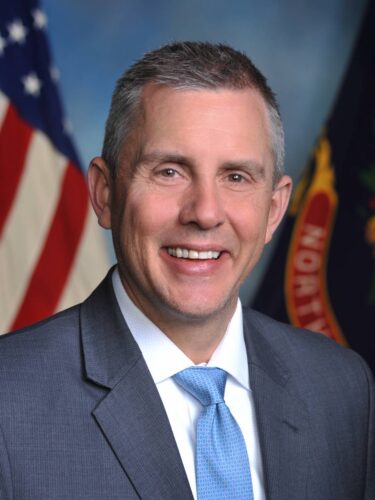North Dakota Governor Kelly Armstrong joined former President Donald Trump at the White House today for the official signing of the HALT Fentanyl Act, landmark legislation aimed at cracking down on the trafficking of deadly fentanyl analogues.
Armstrong, who co-sponsored an earlier version of the bill during his tenure in Congress, praised the measure for permanently classifying fentanyl-related substances as Schedule I drugs—placing them under the same strict federal controls as heroin and other dangerous narcotics.
“Fentanyl is killing North Dakotans in communities across our state,” Armstrong said following the ceremony. “Classifying fentanyl-related substances as Schedule I drugs will close off dangerous loopholes that can be exploited by traffickers, treating the drug with the severity it deserves. I was proud to work with Rep. Griffith and Rep. Latta on this bill during my time in the House, and I thank them for getting it through this Congress. Thank you to President Trump and the White House for inviting me to the bill signing.”
The HALT (Halt All Lethal Trafficking of) Fentanyl Act amends the Controlled Substances Act to permanently schedule all illicit fentanyl analogues as Schedule I substances. The Trump administration first issued a temporary scheduling order in 2018, and Congress has since voted multiple times to extend that classification. The new law makes the classification permanent, while preserving FDA oversight for the legitimate use of medically approved Schedule II fentanyl.
The legislation also streamlines the registration process for researchers studying fentanyl-related substances, a move supporters say will improve public health and safety without stifling scientific discovery.
The bill was spearheaded in the Senate by Sen. Chuck Grassley (R-Iowa), Sen. Bill Cassidy (R-La.), and Sen. Martin Heinrich (D-N.M.), and led in the House by Rep. Morgan Griffith (R-Va.) and Rep. Robert Latta (R-Ohio).
Armstrong’s attendance at the signing ceremony marked a full-circle moment for the governor, who played a key role in advancing earlier iterations of the bill while serving in the U.S. House of Representatives. The legislation has received broad bipartisan support and is widely viewed as a critical tool in the fight against the ongoing opioid epidemic.
The Centers for Disease Control and Prevention estimates that synthetic opioids, including fentanyl, are responsible for tens of thousands of overdose deaths each year in the United States.
By: BSH staff

